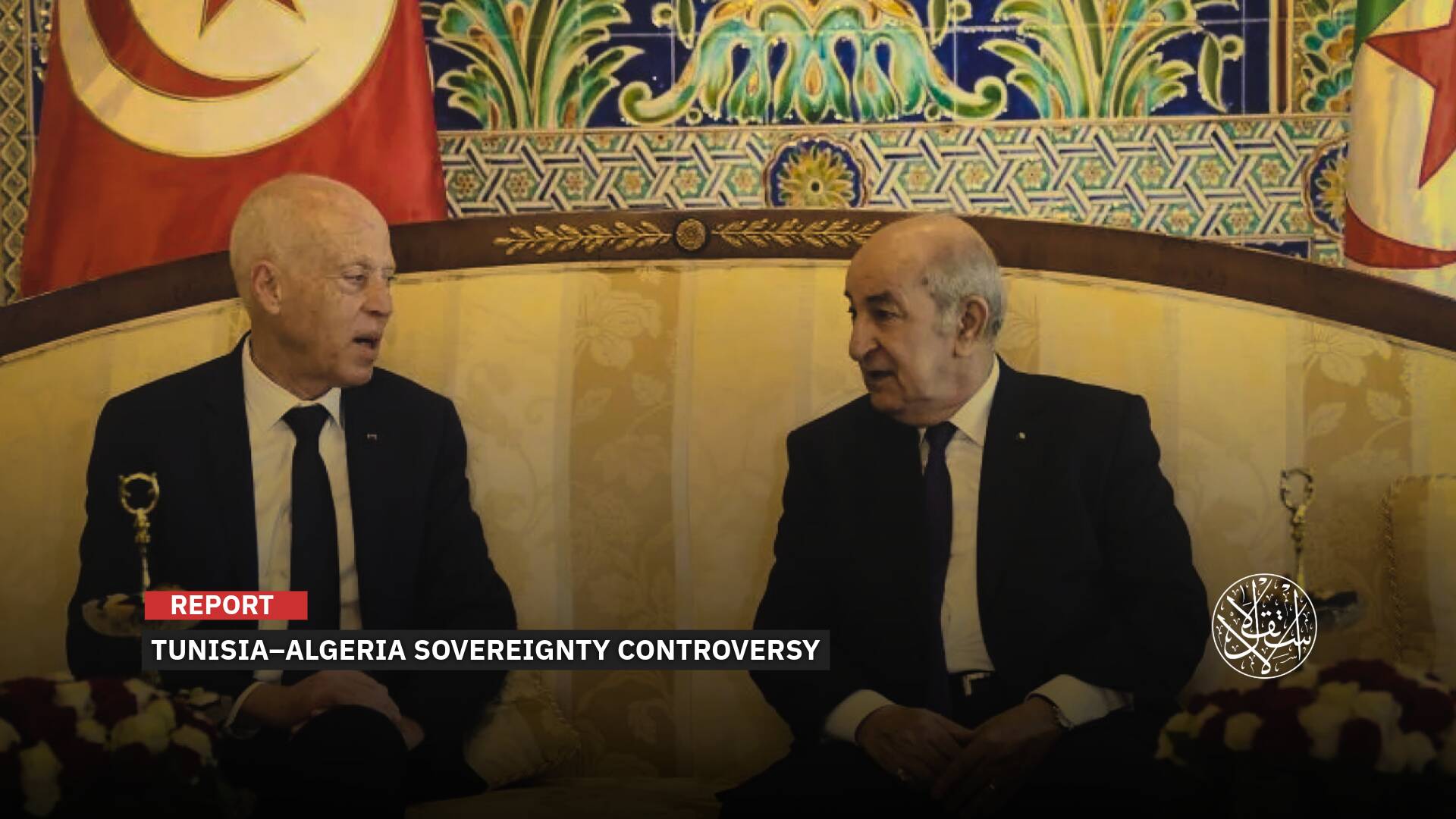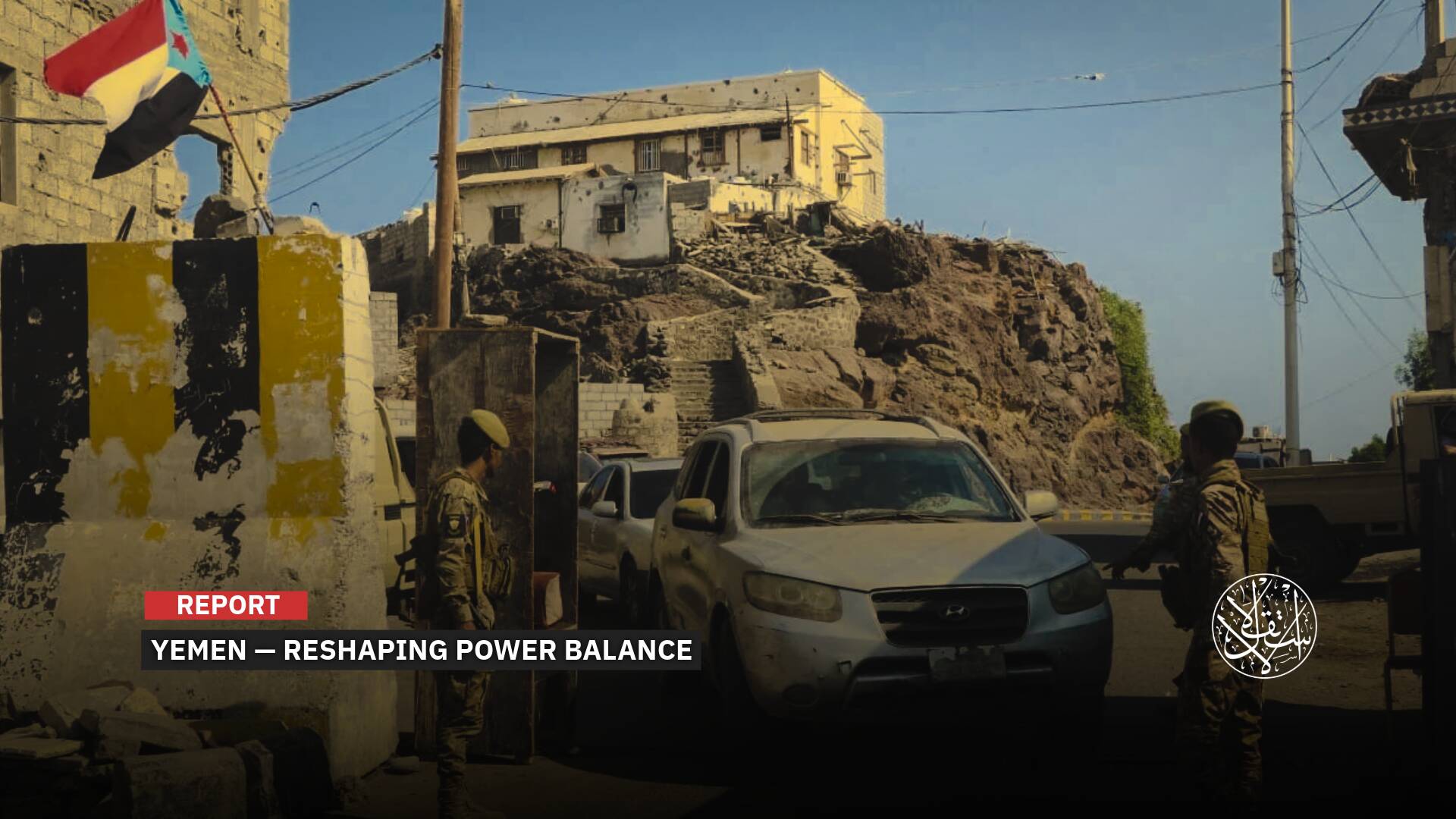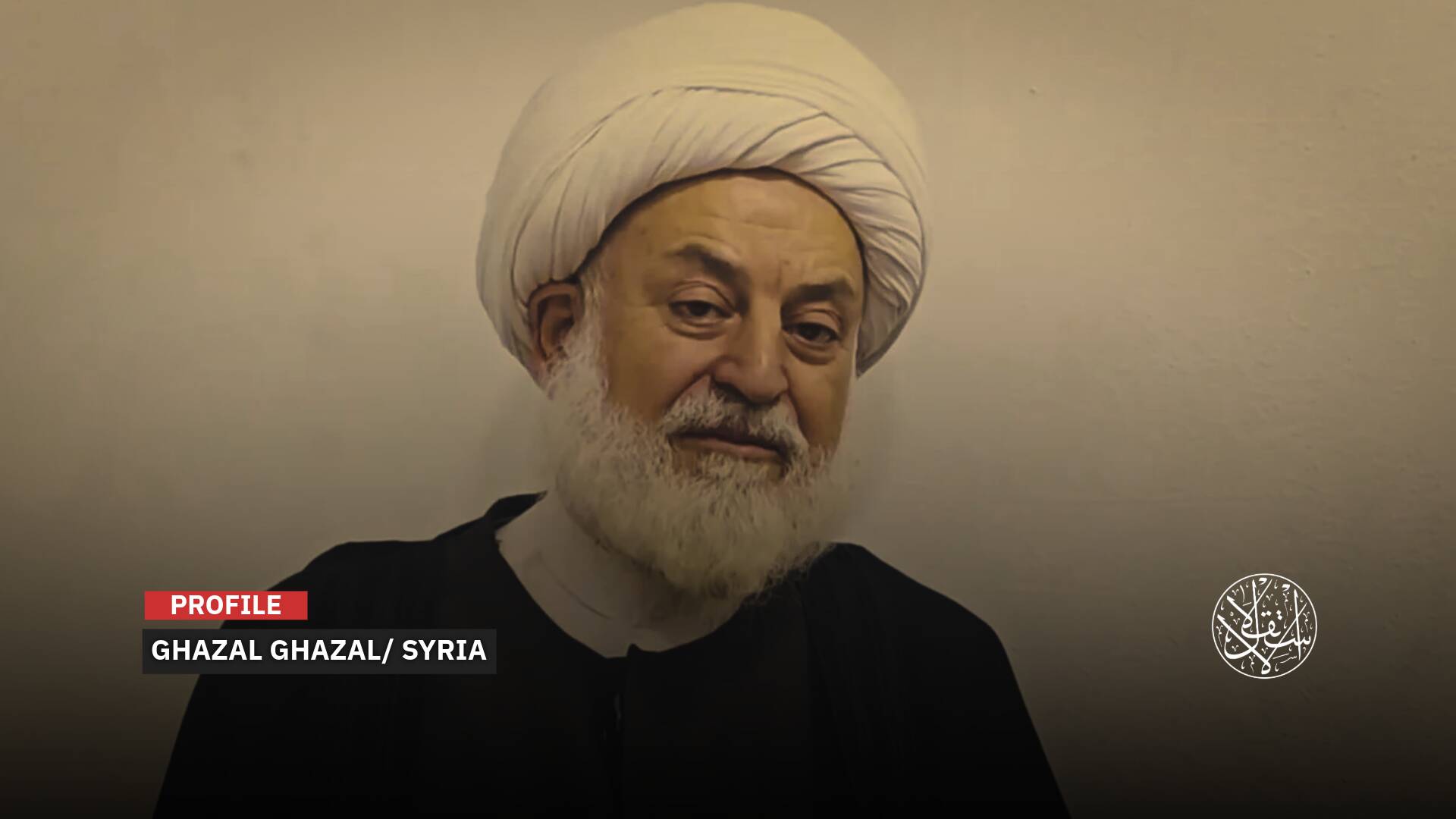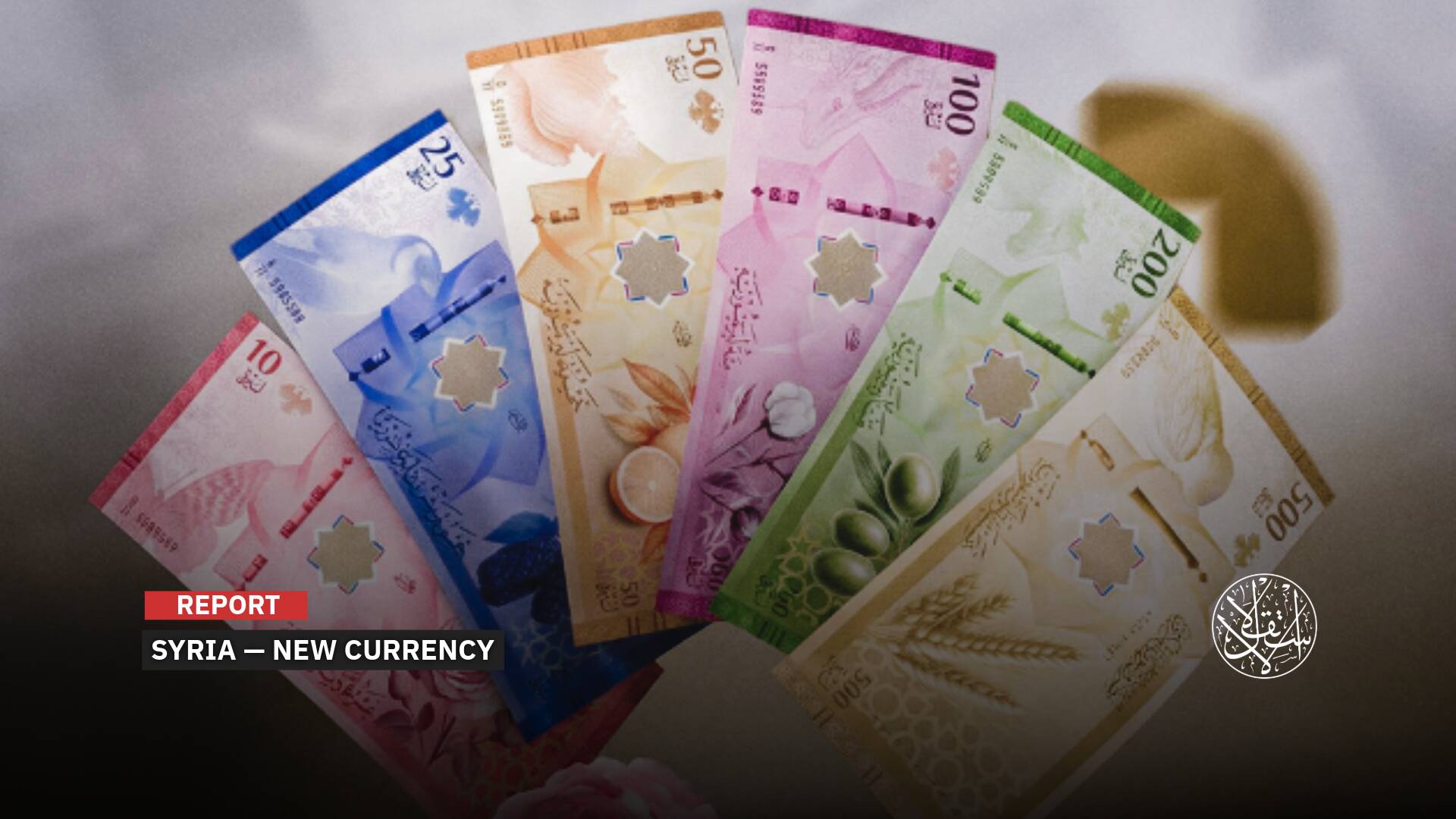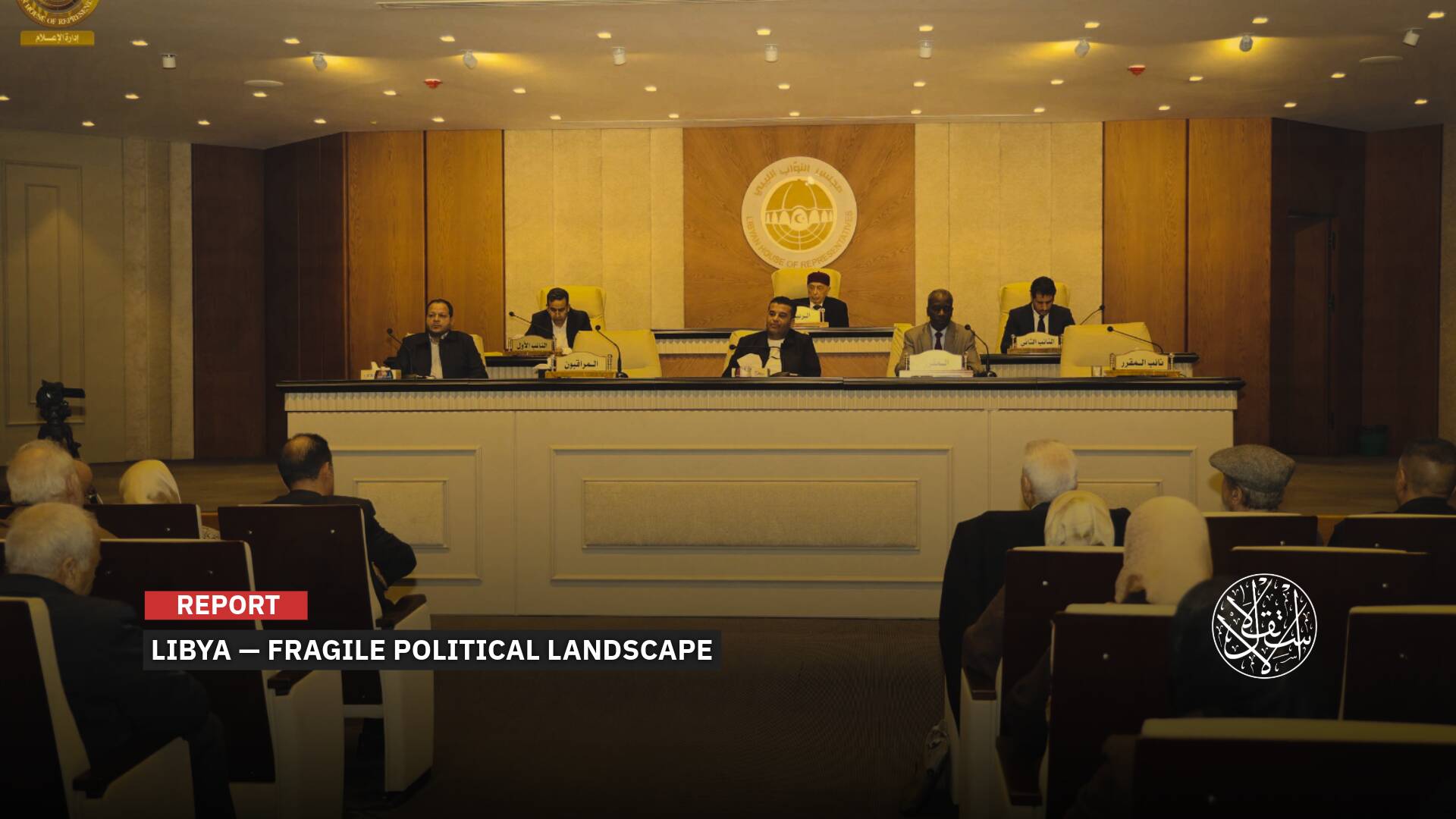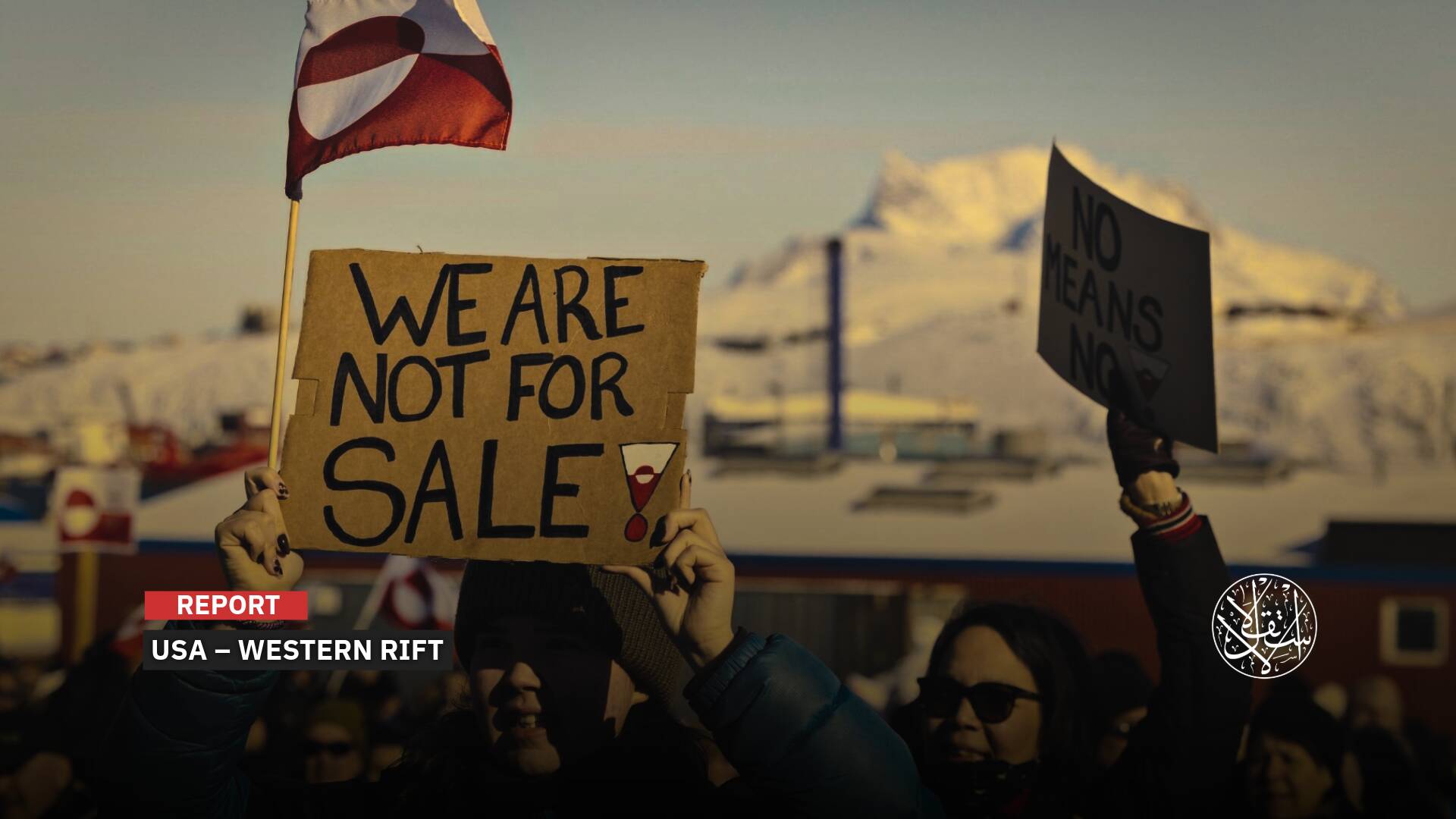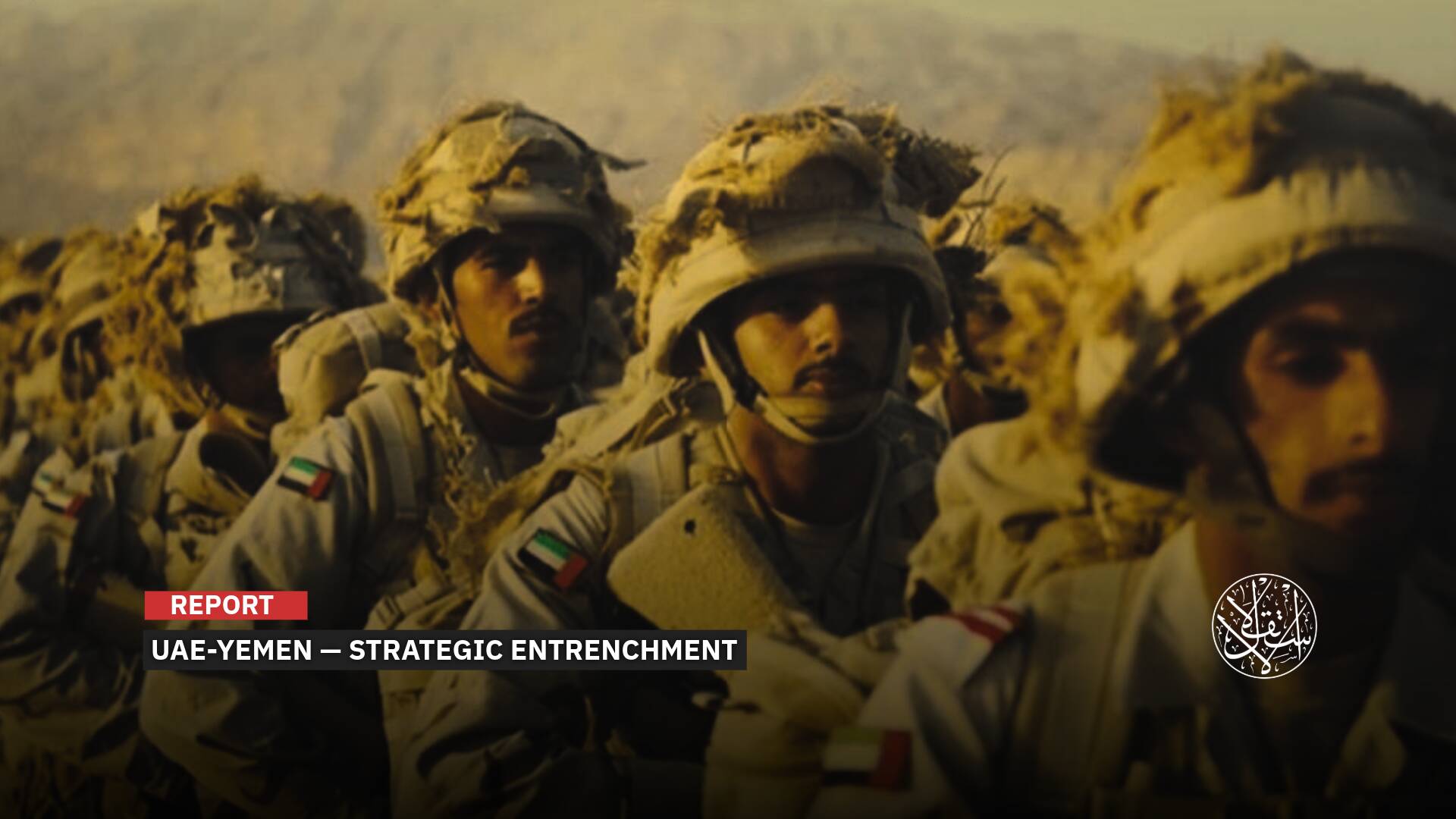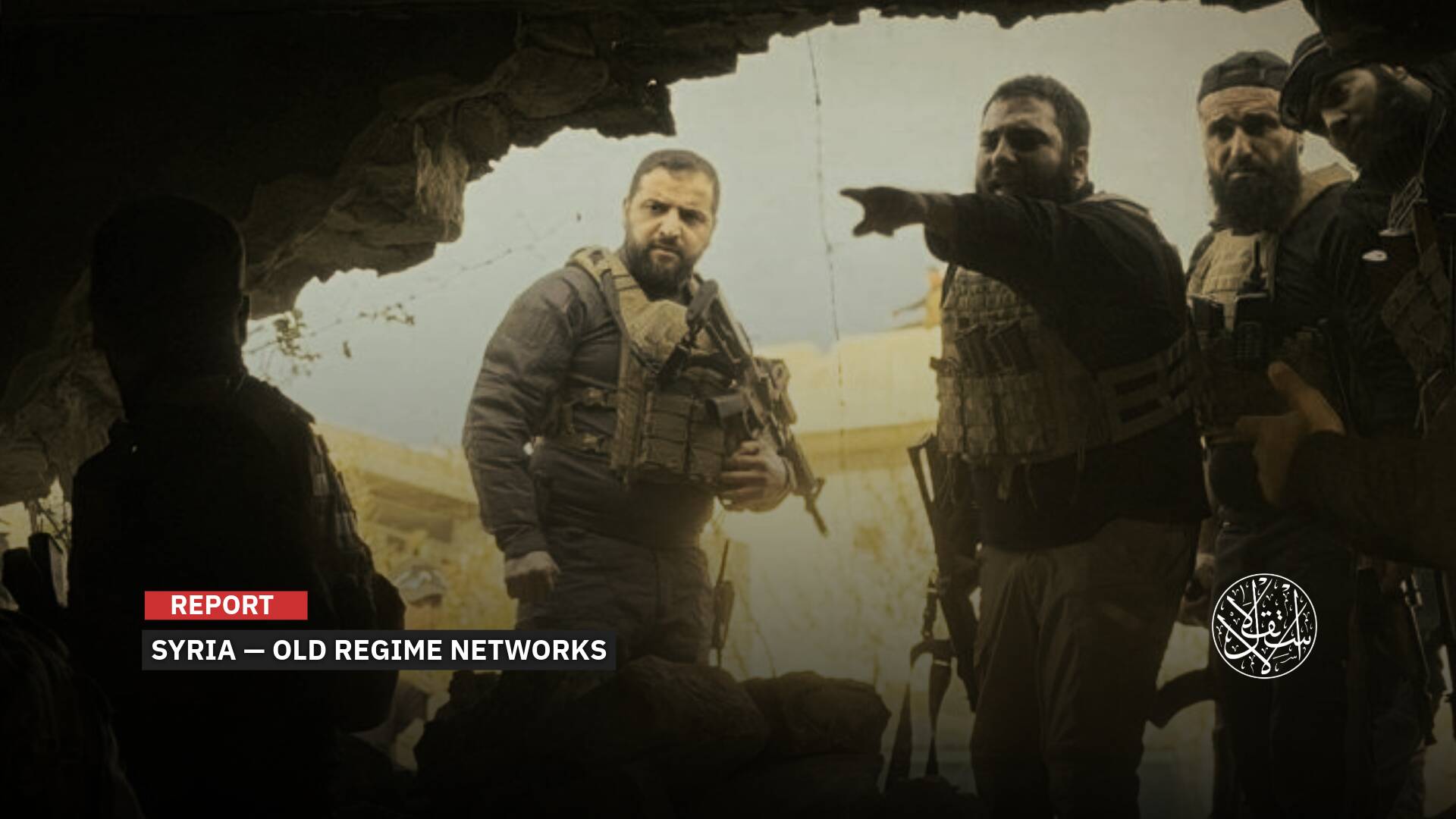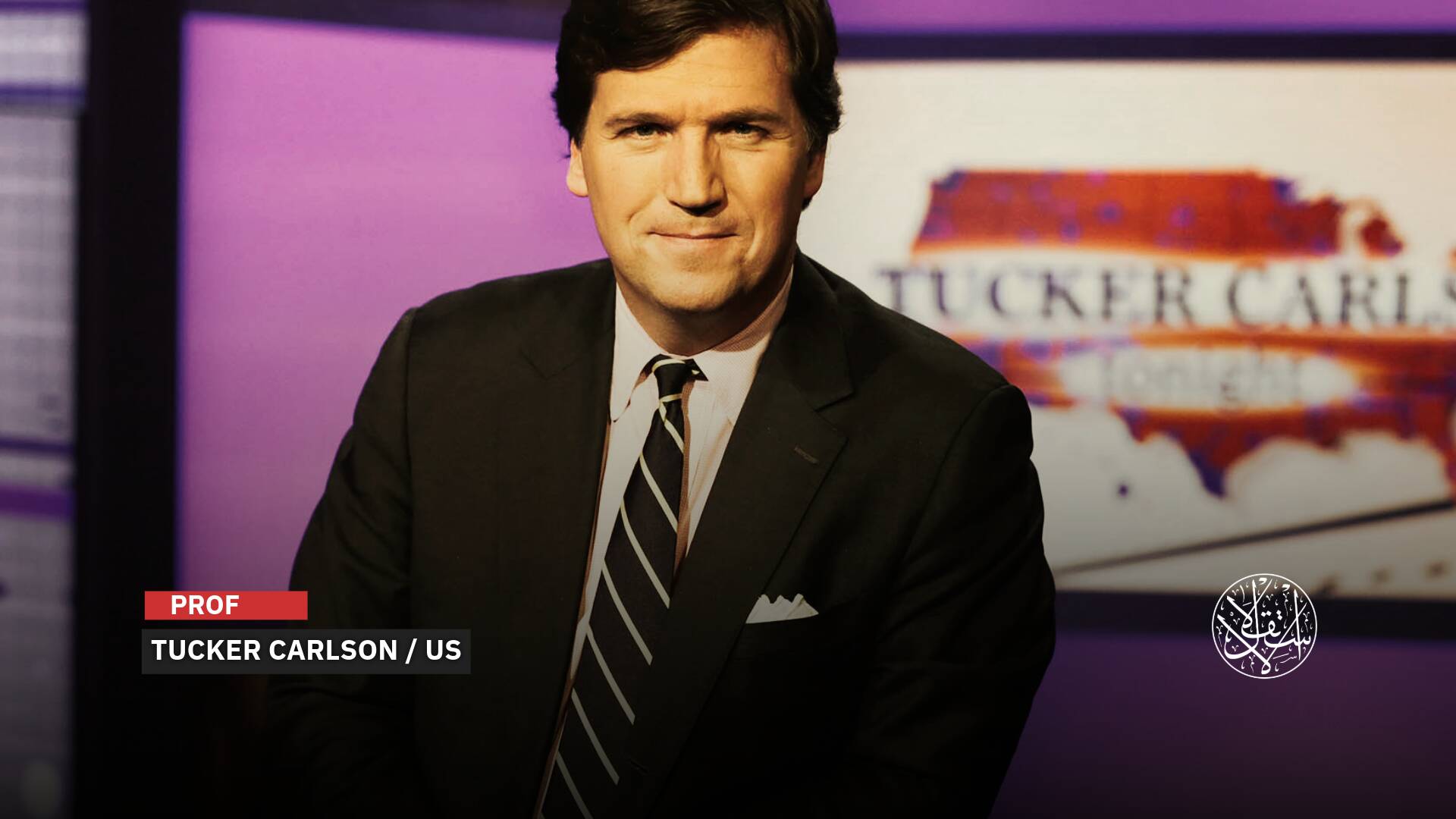Western Demands, Positive Results: Can Syria Integrate into the Global Financial System?

Washington meetings led to the allocation of $150 million in direct grants to support Syria's energy sector.
A Syrian ministerial delegation recently traveled to the United States, leading a difficult effort to reintegrate Syria into the global financial system, following the withdrawal of all privileges under the ousted Bashar al-Assad regime.
While the new Syrian administration seeks to revive the economy and pave the way for a long-term reconstruction phase, top priorities include reforming state-owned enterprises, managing public debt, and enhancing financial market infrastructure.
These efforts coincided with the British government's announcement on April 24, 2025, that it had lifted sanctions on Syria's Ministries of Interior and Defense, confirming that the assets of both ministries were no longer frozen.
Financial Reintegration
Despite these developments, the United States and other countries have yet to lift the sanctions imposed after 2011, citing the need for Syria’s new authorities to demonstrate a commitment to inclusive, peaceful governance.
On April 20, 2025, Syrian Finance Minister Mohammed Yisr Barnieh and Central Bank Governor Abdul Qadir al-Hasriya attended the IMF and World Bank Spring Meetings in Washington. Their mission was to enhance Syria’s prospects for reintegration into the global financial system.
Barnieh shared on LinkedIn that the Syrian delegation carried an extensive agenda of bilateral meetings, expressing hope that these efforts would positively impact Syria’s return to the international financial community.
He further emphasized that the meetings could create opportunities to support Syria’s reconstruction, institution-building, and the establishment of economic and financial stability, all of which are essential for putting the Syrian economy on the path to recovery.
In the end, Barnieh emphasized that improving the prospects for a better life for the Syrian people, who have endured significant hardship, is of utmost importance to the country's leadership.
During their Washington visit, Barnieh and al-Hasriya also met with Anna Bjerde, Managing Director of Operations at the World Bank, and Othman Diouni, Vice President for the Middle East and North Africa region.

On April 24, Syrian Finance Minister Barnieh announced via LinkedIn that an agreement had been reached to develop a comprehensive and structured work program to support Syria, with a clear agenda covering this year and the next.
Key areas of cooperation include “grant-supported participation in electricity sector reforms, expected to launch in the next 2-3 months,” as well as efforts to “revitalize and enhance public financial management to improve compliance and accountability.”
Technical assistance across vital areas will focus on “reforming state-owned enterprises, managing public debt, financial market infrastructure, social safety nets and poverty reduction, banking sector reform, statistics, capital market development, and public-private partnerships.”
Meanwhile, Abdullah Dardari, Assistant Secretary-General of the UN Development Programme, told Reuters on April 18 that officials would discuss key steps to restore support for Syria from the World Bank and IMF during meetings that month. However, he noted that sanctions remain a significant obstacle to the country’s reconstruction.
Dardari, a Syrian national, added that a roundtable on Syria, hosted by the Saudi government and the World Bank, would take place on the sidelines of the international financial institutions’ annual meetings in Washington.
“It gives a signal to the rest of the world and to the people of Syria that you have these biggest financial institutions ready to support,” Dardari said.
On April 24, 2025, Syria’s Central Bank Governor, Abdul Qadir al-Hasriya, announced that Saudi Arabia and Qatar had agreed to cover Syria’s outstanding debt to the World Bank, amounting to $15 million.
This step marks the beginning of Syria’s reintegration into the global financial system and signals a shift toward comprehensive economic reforms, paving the way for potential millions of dollars in grants for reconstruction and other economic support.
Dardari told Reuters that a pay-off would allow the World Bank to support Syria through its International Development Association, which provides funds for low-income countries.
“This is a big ticket item for Syria to negotiate with the World Bank. There's also the Special Drawing Rights at the IMF. Again, that's a big ticket item, in addition to all the policy and technical assistance that the Bank and the Fund can provide Syria,” Dardari said.

Syria holds $563 million in SDRs with the IMF, but using these funds requires the approval of IMF members who control 85% of the total votes, effectively giving the United States, holding 16.5%, veto power.
According to UN officials, simply lifting sanctions on Syria will not be enough. Countries considering investing $100 million in a power plant, for example, are currently hesitant, fearing the re-imposition of sanctions. Hence, Damascus insists on the full removal of sanctions, rather than partial easing.
However, the UN Development Programme has received an exemption from U.S. Treasury sanctions to mobilize up to $50 million for the rehabilitation of the Deir Ali power plant south of Damascus.
The World Bank is also considering providing hundreds of millions of dollars in grants to improve Syria’s electricity grid and support the public sector.
The mission of the Syrian delegation in Washington, therefore, is to reassure the world that Syria is committed to adhering to global financial standards and wants to be part of the international financial system.
Binding Conditions
Economic experts do not rule out the possibility that the international community might offer Syria an opportunity to achieve this integration with the global financial system by restructuring and revitalizing its banking systems through technical assistance.
This is especially important given that Syria’s banks have become largely isolated from the global financial system due to sanctions and the risk-mitigation measures imposed by international institutions.
This requires the adoption of international laws and addressing compliance with anti-money laundering and counter-terrorism financing regulations.
At the same time, Syria must make efforts to recapitalize its banks, resolve non-performing loans, modernize banking infrastructure, and expand financial inclusion.
The Union of Arab Banks is playing a proactive role in preparing for the reconstruction of Syria’s banking sector once the political situation stabilizes.

“Reintegration into the global financial system means that Syria will once again become an active member, eligible for loans and aid from the IMF or World Bank, capable of accessing global markets, and able to conduct international money transfers without restrictions, risks, or freezes, and be part of the financial reports within the global transfer system [SWIFT],” Syrian economist Firas Shaabo told Al-Estiklal.
“One of Syria's strengths today is the presence of a government open to international institutions and a reduction in political isolation compared to previous years, alongside a rational and realistic economic discourse, discussing supplementary budgets and a return to the 2026 budget, and fostering internal communication with traders and civil society in Syria.”
Shaabo also pointed out the need for stability in Syria, which the international community desires both politically and economically, to prevent social collapse. “All regional and Western countries need Syria’s stability,” he said, noting significant challenges like sanctions, the lack of clear legislation on institutional work mechanisms, freedom of thought, transparency in all sectors, and a lack of governance in government decisions, in addition to the continued parallel economy and a weak banking system.
“The IMF may ask Syria to meet several conditions for financial reintegration, including exchange rate reforms, rationalizing the support of the Central Bank’s independence, and providing international financial reports.”
“The World Bank may request prioritization of development and clarification of the reasons for awarding tenders to specific individuals, ensuring greater transparency,” Shaabo added.
“There is also a focus on supporting smaller groups in Syria and meeting the demands of the International anti-money laundering agency, which focuses on understanding the destination of financial transfers into Syria.”
“International support for implementing an economic reform program in Syria over two years could take place under a realistic agreement that allows international institutions to enter Syria to audit the Central Bank’s operations, strengthen judicial independence in finance, and adhere to budgets.”
“Syria can succeed in reintegrating into the global financial system with precise political and economic conditions. It’s not a matter of time, but of trust and a fundamental readiness for change in governance and management style in the country,” the expert concluded.
In light of this, the visit of the Syrian Minister of Finance and the Governor of the Central Bank to participate in the meetings of the IMF and World Bank is seen as a positive step toward reintegrating Syria into the global financial system.
Positive Initial Results
The first tangible outcome of these efforts was announced by Central Bank governor Abdul Qadir al-Hasriya on 24 April 2025, when he told The New Arab that meetings in Washington had led to an agreement with international institutions and donor agencies to deliver direct grants worth $150m to support Syria’s energy sector.
Al-Hasriya also noted that a sweeping two-year plan had been set in motion, targeting financial infrastructure, public institutions, and the banking sector, a roadmap aimed at steering Syria toward a carefully managed economic transition with backing from international partners.
In a notable development that aligns with Syria’s efforts, the IMF announced the appointment of Dutch economist Ron van Roden as the head of its mission to Syria, a move that marks the first such appointment in over 14 years.
London lifted sanctions imposed on several media groups and intelligence agencies that were in place during Assad's rule. The new Syrian leadership has announced the dissolution of all these agencies, retaining only the General Intelligence Service, and also forming a National Security Council led by President Ahmed al-Sharaa.
The British sanctions relief also covered other sectors, including financial services and energy production, which could facilitate significant investments in energy sector infrastructure and assist Syrians in rebuilding their country and economy.
These British steps toward Syria’s national economy were preceded by a UK commitment in mid-March 2025 to provide up to £160 million ($200 million) in 2025 alone to support Syria’s recovery.
Recently, Syria has intensified its presence in reviving a roadmap for the country’s economic vision.

On April 17, 2025, Syrian Foreign Minister Asaad al-Shaibani discussed the recovery of Syria's economy at an economic conference in al-Ula, western Saudi Arabia.
Al-Ula Emerging Markets Conference, organized jointly by the Saudi Ministry of Finance and the International Monetary Fund (IMF), saw participation from finance ministers, central bank governors, policymakers, and economists from 48 countries around the world.
On April 19, 2025, the United Nations Development Programme (UNDP) announced its intention to provide $1.3 billion in aid to Syria over the next three years to support sectors such as infrastructure rebuilding and the development of digital startups.
Experts agree that once sanctions are lifted from Syria, international funding will flow into the country.
A report by the UN Programme released in February 2025 warned that, based on current economic growth rates, Syria would not be able to recover its pre-2011 GDP levels until 2080.
The international organization estimated total GDP losses at around $800 billion over the past 14 years.
Nine out of ten Syrians currently live below the poverty line, with one in four unemployed, while GDP has fallen to less than half of its 2011 level.
The report also showed a decline in the Human Development Index, which includes health, education, and standard of living, to levels below those of 1990, equivalent to over 30 years of developmental progress lost due to the war.
Improving the exchange rate of the Syrian pound is one of the country’s major financial challenges. Before 2011, the dollar was worth about 50 Syrian pounds, but the local currency has since gradually collapsed, losing more than 90% of its value.
The official exchange rate recently reached 10,000 pounds to the dollar, compared to around 15,000 pounds in the months before the fall of Bashar al-Assad's 24-year rule.
Sources
- The Impact of the Conflict in Syria
- Syria in contact with World Bank team on financial ties, banking reforms
- UN development arm plans for $1.3 billion in help for Syria, top official says
- Syrian delegation heads to Washington: Integration into the international financial system a top priority [Arabic]
- IMF to help Syria rebuild institutions, re-enter world economy, Georgieva says


